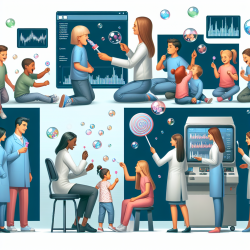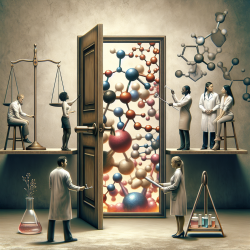Unlock the Secrets: How Cutting-Edge Schizophrenia Research Can Transform Your Therapy Sessions!
As a speech-language pathologist dedicated to creating great outcomes for children, staying updated with the latest research is essential. A recent study titled Expression analysis in a rat psychosis model identifies novel candidate genes validated in a large case–control sample of schizophrenia has revealed groundbreaking insights that can inform and enhance your practice. This blog will explore how you can leverage these findings to improve your therapeutic approaches and encourage further research in the field.
Understanding the Research
The study focused on identifying genes associated with schizophrenia by using a rat model treated with the NMDA receptor antagonist MK-801. This model mimics the psychosis-like symptoms observed in schizophrenia. Researchers identified 20 genes with altered expression in the hippocampus of these rats. They then validated these findings in a large human sample, discovering that four of these genes—SF3B1, FOXP1, DLG2, and VGLL4—showed significant associations with schizophrenia.
Implications for Speech-Language Pathology
While this research primarily targets schizophrenia, the findings have broader implications for neurodevelopmental disorders, including those that affect speech and language. Here are some ways you can apply these insights:
- Personalized Therapy Plans: Understanding the genetic underpinnings of neurodevelopmental disorders can help you tailor therapy plans to individual needs. For instance, if a child has a family history of schizophrenia or related disorders, incorporating techniques that address potential cognitive and language impairments can be beneficial.
- Early Intervention: Early identification of at-risk children can lead to more effective interventions. By staying informed about genetic markers associated with neurodevelopmental disorders, you can advocate for early screening and intervention.
- Collaborative Approach: Collaborate with geneticists and other healthcare professionals to develop comprehensive care plans. This interdisciplinary approach can provide a more holistic understanding of a child's needs and improve outcomes.
Encouraging Further Research
While the study offers valuable insights, it also highlights the need for further research. Here are some areas where additional studies could be beneficial:
- Longitudinal Studies: Conducting long-term studies to observe how genetic markers influence the development of speech and language disorders over time.
- Intervention Efficacy: Researching the effectiveness of different therapeutic interventions in children with genetic predispositions to neurodevelopmental disorders.
- Cross-Disciplinary Research: Encouraging collaboration between speech-language pathologists, geneticists, and neuroscientists to explore the complex interactions between genes and environmental factors.
Conclusion
The study on gene expression in a rat psychosis model provides valuable insights that can enhance your practice as a speech-language pathologist. By integrating these findings into your therapy sessions and advocating for further research, you can contribute to better outcomes for children with neurodevelopmental disorders.
To read the original research paper, please follow this link: Expression analysis in a rat psychosis model identifies novel candidate genes validated in a large case–control sample of schizophrenia.










